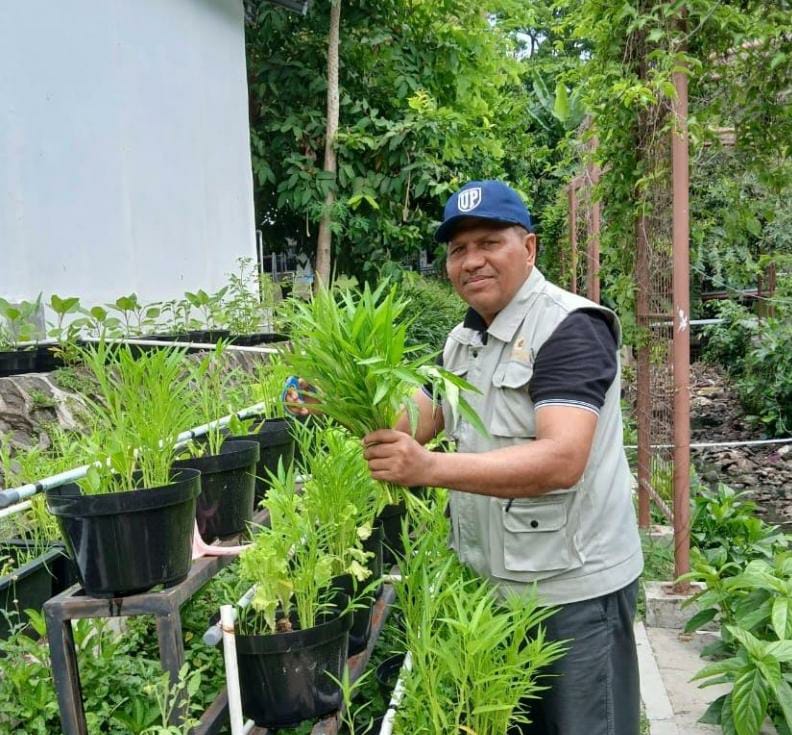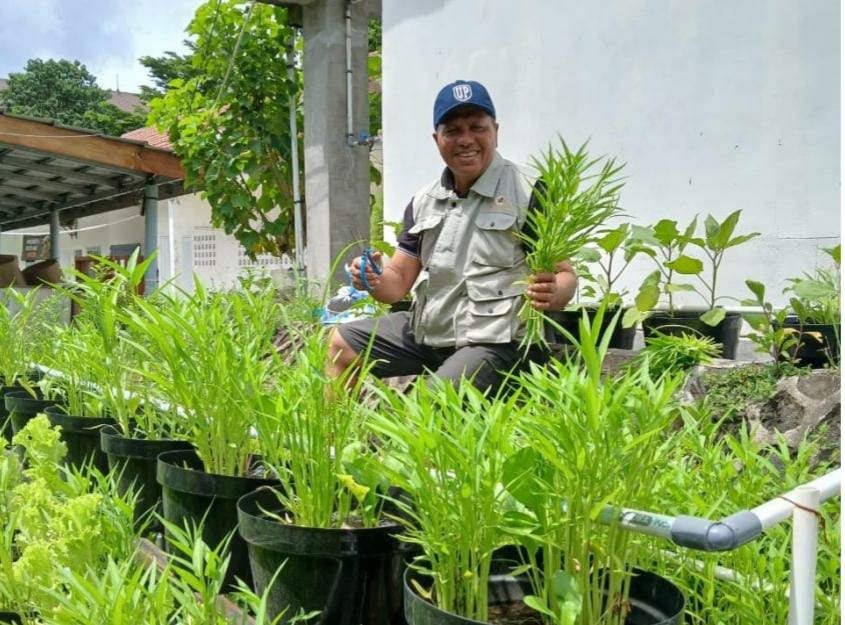
A research team from the Faculty of Agriculture, Universitas Gadjah Mada (Faperta UGM), has launched a community service program aimed at utilizing wastewater from aquaponic fish farming as liquid organic fertilizer. The program, which runs for ten months from 29 February to 9 December 2024, involves faculty members including Dr. Latif Sahubawa, M.Si., Dr. Bambang Triyatmo, M.P., Dr. Erlina Ambarwati, S.P., M.P., and students from various academic levels. The initiative is designed to support sustainable food production through the SMART ECO-BIOPRODUCTION system.
Aquaponics offers an innovative solution by integrating fish farming and plant cultivation within a single sustainable ecosystem. Wastewater from tilapia and catfish farming, which is rich in nutrients, is effectively utilized to fertilize vegetable crops such as water spinach, celery, tomatoes, eggplant, and spinach. This integration not only enhances productivity but also fosters an eco-friendly and efficient approach to agriculture.

“The distribution of nutrient-rich water three times a day promotes optimal vegetable growth, while the cut-and-regrow harvesting method allows for continuous regeneration and sustainable yields,” explained Dr. Latif Sahubawa, the Head of the Community Service Team. The implementation of this innovation has demonstrated impressive productivity. During the first harvest, water spinach yielded 3.74 kg, followed by the second harvest with 3.50 kg in just five days. With market prices reaching IDR 40,000 per kilogram for water spinach and up to IDR 75,000 per kilogram for celery, this method not only promotes environmental sustainability but also provides a promising source of income for farmers.
Beyond its direct impact on economic improvement, this innovation contributes to the achievement of the Sustainable Development Goals (SDGs), particularly: SDG 2: Zero Hunger, SDG 6: Clean Water and Sanitation, SDG 12: Responsible Consumption and Production
This program strengthens the Faculty of Agriculture UGM’s commitment to promoting integrated agricultural systems based on technological innovation for environmental sustainability and community welfare.
Authors: Agrit Kirana Bunda & Alkhansa Khairunnisa
Editor: Desi Utami
